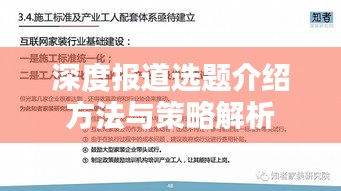Introduction to English Capitalization Rules
English capitalization is a fundamental aspect of written communication that helps to convey the intended meaning and to maintain consistency in the text. Proper capitalization is essential for readability, clarity, and professionalism. This article will delve into the various rules and guidelines for capitalization in English.
General Rules for Capitalization
Here are some general rules for capitalization in English:
The first word of a sentence should always be capitalized.
The last word of a sentence should be capitalized, regardless of its position in the sentence.
Words within a sentence that are part of a title, unless they are the first or last word, should be capitalized. This is known as title case.
Personal pronouns (I, you, he, she, it, we, they) should always be capitalized.
The pronoun "I" should always be capitalized, even when it is not the first word of a sentence.
Words that are part of a proper name, such as names of people, places, organizations, and specific titles, should be capitalized.
The days of the week, months of the year, and holidays are typically capitalized.
Capitalizing the First Letter of Sentences
One of the most basic rules of English capitalization is that the first word of every sentence should be capitalized. This rule applies to both the first word of a new sentence and any word following a period, exclamation point, or question mark that starts a new sentence. For example:
Capitalizing the first letter of a sentence is a fundamental rule in English grammar.
When you finish a sentence, you use a period, and the next sentence starts with a capital letter.
Title Case and Sentence Case
Title case and sentence case are two different ways of capitalizing words within a sentence. Title case is used for titles, headings, and other formal titles, while sentence case is used for the body of the text. Here are the key differences:
Title Case:
Capitalize the first letter of each major word.
Do not capitalize articles (a, an, the), conjunctions (and, but, or), or prepositions (in, on, at) unless they are the first or last word of the title.
Sentence Case:
Capitalize only the first word of the sentence and proper nouns.
Do not capitalize articles, conjunctions, or prepositions unless they are the first or last word of the sentence.
Capitalizing Words in a Title
When formatting a title, it is important to follow the appropriate capitalization style. Here are some guidelines for capitalizing words in a title:
Capitalize the first and last words of the title.
Capitalize all nouns, pronouns, verbs, adjectives, and adverbs.
Do not capitalize articles, conjunctions, or prepositions unless they are the first or last word of the title.
Capitalizing Proper Nouns
Proper nouns are names given to specific people, places, organizations, and things. Here are some examples of proper nouns and their capitalization:
People: John Smith, Jane Doe
Places: New York, Paris, the Alps
Organizations: The United Nations, Apple Inc.
Titles: Dr. Johnson, Professor Smith
Capitalizing Days, Months, and Holidays
Days of the week, months of the year, and holidays are typically capitalized in English. Here are some examples:
Days of the week: Monday, Tuesday, Wednesday, Thursday, Friday, Saturday, Sunday
转载请注明来自江苏志达物流有限公司,本文标题:《英文大写规范:英文大写字母书写规范 》











 蜀ICP备2022005971号-1
蜀ICP备2022005971号-1
还没有评论,来说两句吧...